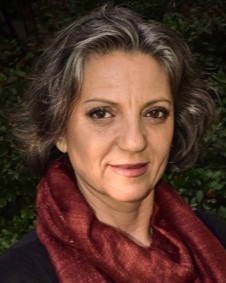
Sandra Díaz is a Senior Principal Investigator (Investigadora Superior) of the Argentine National Research Council, a Professor of Ecology at Córdoba National University (Argentina), and an Oxford Martin School Fellow at the Leverhulme Centre for Nature Recovery, Oxford University (United Kingdom). Her permanent home is in Córdoba, Argentina. An ecologist by training, she is interested in plant functional traits and syndromes, their effects on ecosystem properties, their contributions to human quality of life, and their interactions with global change drivers. She constructed the first global quantitative picture of essential functional diversity of vascular plants –the global spectrum of plant form and function. She has advanced theory and practical implementation of the concept of functional diversity and its effects on ecosystem properties and benefits to people. She combines her ecology studies with interdisciplinary work on how different societies value and reconfigure nature, having spearheaded transformative conceptual frameworks favouring pluralistic collaborations in environmental knowledge and action, including the influential notion of nature’s contributions to people. She co-founded the Global Communal Plant Trait Initiative TRY. She co-chaired the Global Assessment of the Intergovernmental Platform on Biodiversity and Ecosystem Services and played a major role in the expert scientific advice to the Kunming-Montreal Global Biodiversity Framework. She is a Foreign Fellow of the British Royal Society, a member of the American Philosophical Society and a member of the Academies of Sciences of Argentina, USA, France, Norway, Latin America and the Developing World, and the American Academy of Arts and Sciences. He has received several international scientific awards, including the Margalef Prize in Ecology (2017), the Gunnerus Sustainability Prize (2019), the Senckenberg Award for Nature Research (2019, the Princesa de Asturias Award for Scientific and Technological Research (2019) and Medals from the Royal Botanic Gardens Kew (2020) and Edinburgh (20230 and the Linnean Society (2023).
